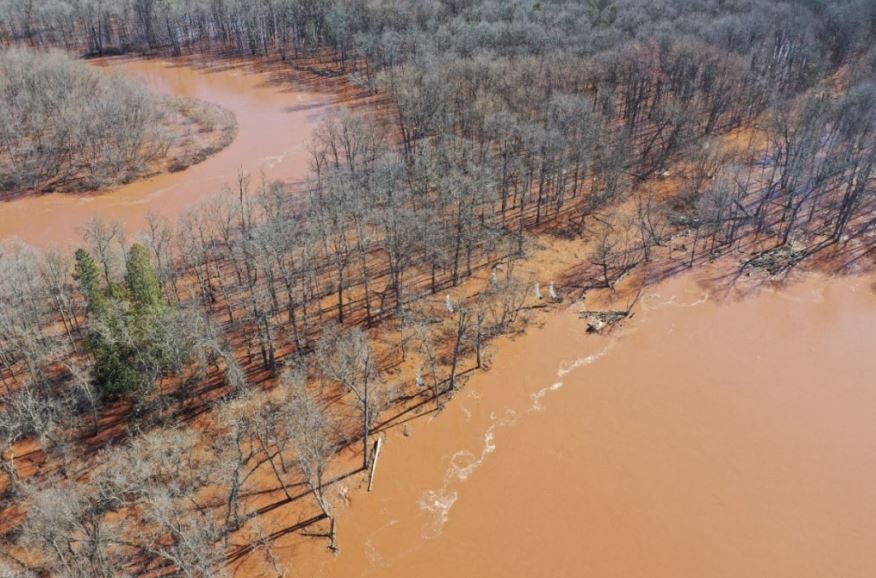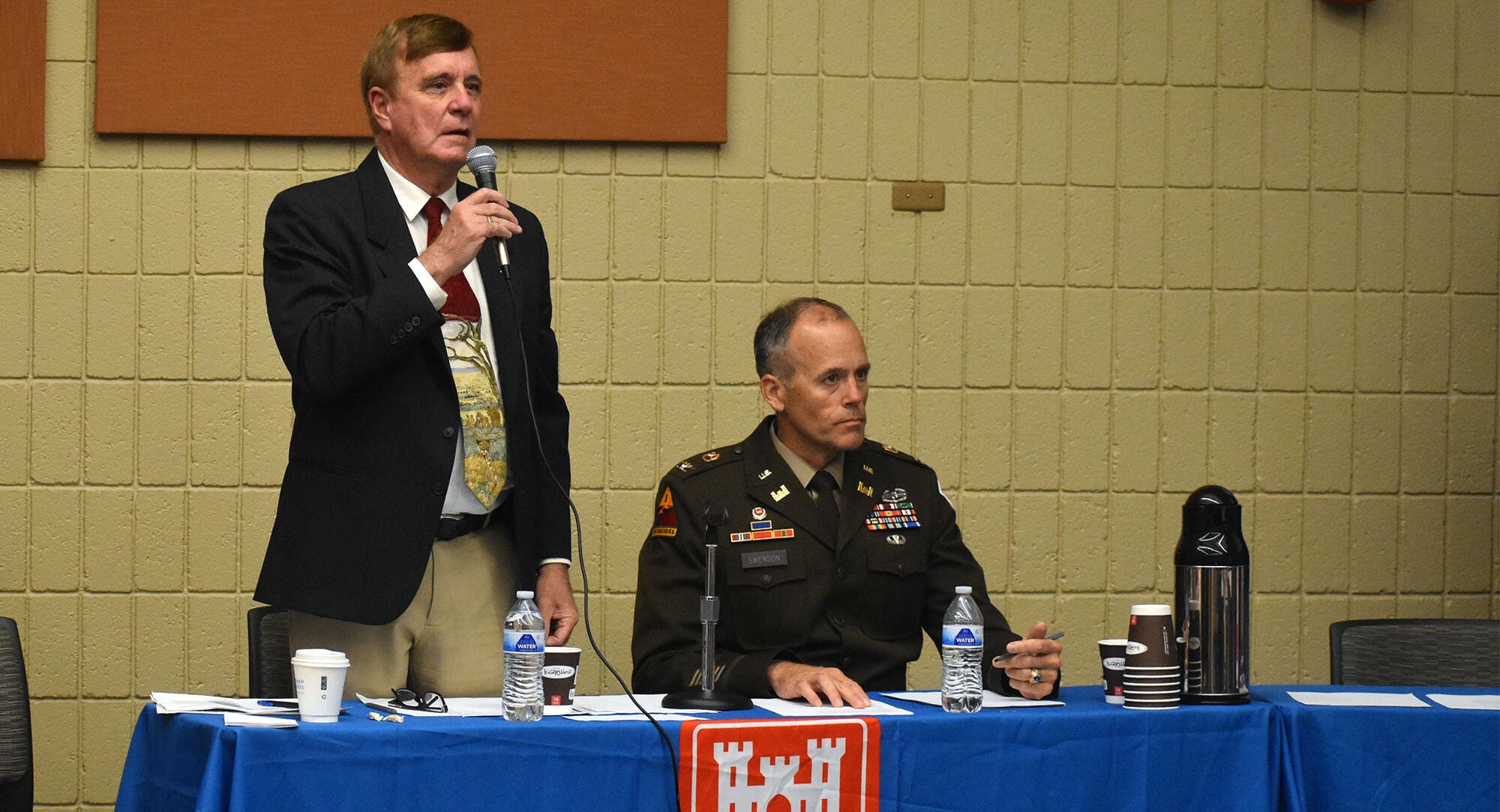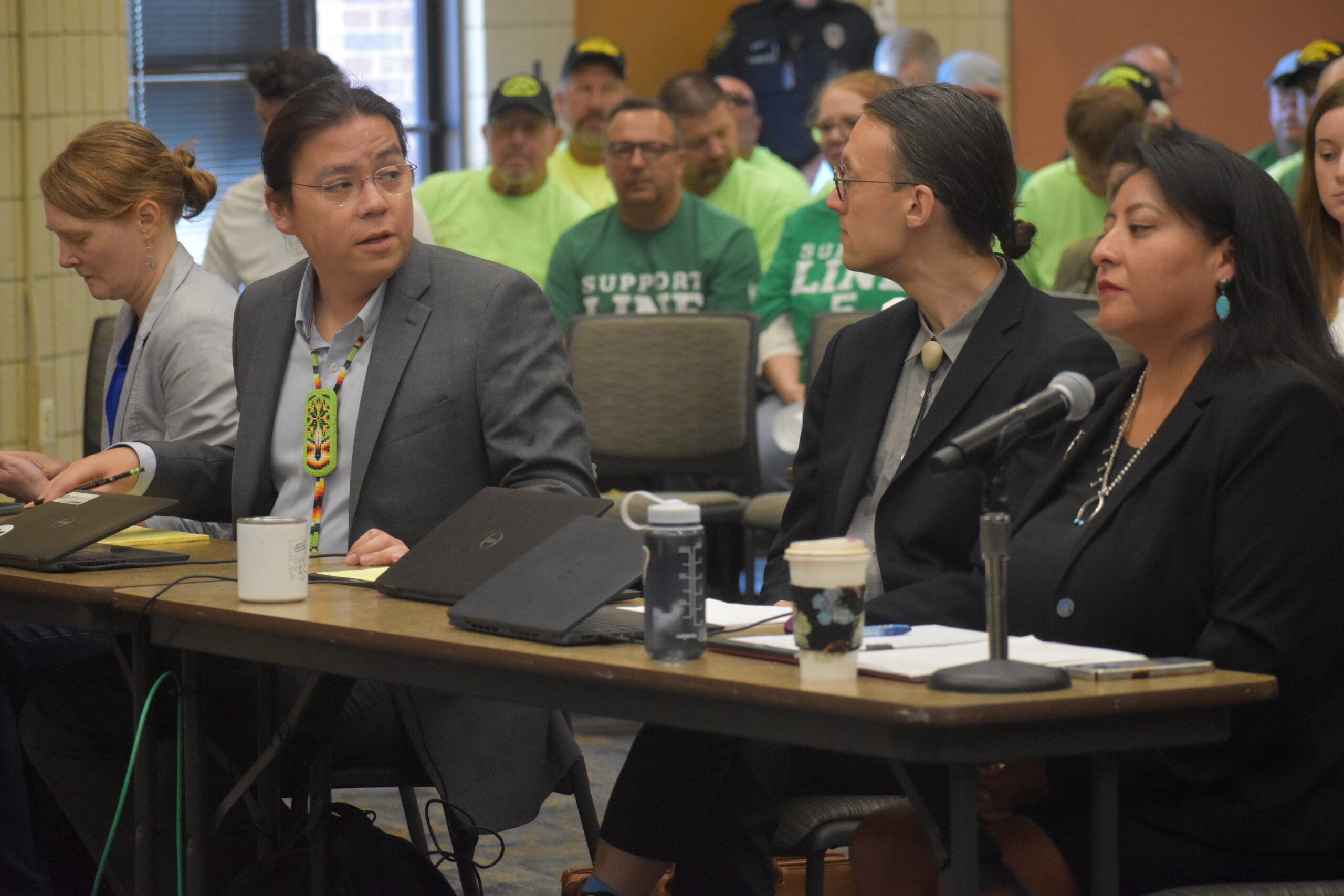A federal judge is ordering a Canadian energy firm to pay $5.1 million for trespassing on a northern Wisconsin tribe’s reservation and remove its oil and gas pipeline from lands it’s illegally operating on within three years.
The decision comes nearly four years after the Bad River Band of Lake Superior Chippewa filed a federal lawsuit against Enbridge, Inc. to shut down and remove its Line 5 pipeline from the reservation. The company’s easements on a dozen parcels of land expired in 2013, and the tribe refused to renew them. Last fall, U.S. District Judge William Conley ruled Enbridge has been trespassing on the Bad River reservation, entitling the tribe to a financial remedy.
The nearly 70-year-old Line 5 carries up to 23 million gallons of light crude oil and natural gas liquids each day over a 645-mile span from Superior across northern Wisconsin and Michigan to Sarnia, Ontario.
News with a little more humanity
WPR’s “Wisconsin Today” newsletter keeps you connected to the state you love without feeling overwhelmed. No paywall. No agenda. No corporate filter.
The tribe sued Enbridge over fears that erosion could threaten to expose and rupture the pipeline, and concerns over the line’s safety have only heightened in recent weeks as spring flooding increased erosion on the Bad River’s banks near Line 5. The pipeline is now only 11 feet from the river at an area known as the meander.
In an order issued Friday, Conley said a rupture of the pipeline at the meander is a public nuisance and that current conditions create an unreasonable risk of failure. However, he said the threat of rupture is not imminent enough to require an immediate shutdown.
In November, Conley told Enbridge and Bad River to come up with a joint proposal or their best plans for a shutdown on the reservation to avoid a “catastrophic” spill. On Friday, Conley ordered Enbridge to adopt its shutdown plan with minor changes within 21 days that would require preparation to purge the pipeline of product if two markers within 10 feet of Line 5 are lost due to erosion. The pipeline would be purged and shut down if a 60-foot span of pipe became unsupported. The company would also have to pay a portion of its profits to the tribe for as long as the pipeline continues to operate in trespass.
An Enbridge spokesperson said in a statement Saturday that it agreed with the court’s decision that Line 5 should not be immediately shut down, but the company disputed that it is trespassing on the tribe’s lands. Enbridge also disagreed that the pipeline must stop operating on the reservation within three years.
“Enbridge’s position has long been that a 1992 contract between Enbridge and the Band provides legal permission for the line to remain in its current location. Enbridge plans to appeal the Court’s decision,” Enbridge spokesperson Juli Kellner said.
Enbridge said the company is considering all its options, which include seeking to place a hold on the judge’s ruling pending its appeal.
The company has proposed multiple projects to reduce erosion near its pipeline on the Bad River reservation, including a project to place sandbags along the river’s banks. On June 7, the Bad River Tribal Council rejected a permit for the project as part of its authority under the Clean Water Act.
In a statement Monday, Bad River Tribal Chairman Mike Wiggins, Jr. said the tribe appreciates the court’s ruling to end Enbridge’s trespass on tribal lands.
“Tribal sovereignty prevailed over corporate profits,” Wiggins said. “But the Band’s victory is not a cause for unqualified celebration. We are under no illusion that Enbridge will do the right thing. We expect them to fight this order with all of their corporate might. This is just one step in protecting our people and water.”
Even so, Bad River’s attorney Erick Arnold added in the statement that the tribe disagreed with part of the judge’s ruling. He said the three-year timeframe for the pipeline’s closure leaves Bad River “vulnerable to catastrophe.”
“There is no warrant for allowing Enbridge’s trespass to continue for that long,” Arnold said. “And while the Band’s motivations have never been about money, such a small award for a decade-long trespass during which Enbridge earned over a billion dollars in net profits from Line 5 will not sufficiently deter trespassers like Enbridge, but will instead create an incentive for corporations to violate the sovereignty of the Band.”
In response to the tribe’s lawsuit, Enbridge proposed building a $450 million segment of the pipeline in Ashland and Iron counties that would run roughly 41 miles around the tribe’s reservation. The company has secured agreements from all landowners along the route, but it’s still pursuing permits from the Wisconsin Department of Natural Resources and U.S. Army Corps of Engineers.
Kellner said the project hinges on timely approval of permits to allow construction to finish within the court’s three-year timeframe.
“Shutting down Line 5 prior to completion of the proposed relocation project would jeopardize the delivery of reliable and affordable energy to U.S. and Canadian families and businesses, disrupt local and regional economies and violate the Transit Pipeline Treaty,” Kellner said.
If Enbridge fails to complete the project, Conley said the three-year window would allow the public and market time to adjust to a permanent shutdown of Line 5.
“It will also give Enbridge sufficient time to appeal this court’s injunctive order or make new law,” Conley wrote.
Enbridge experts have said in court filings that shutting down Line 5 could result in the loss of more than 6,000 jobs and nearly $5 billion in lost economic output in the Upper Midwest, as well as increase fuel costs by an estimated $20 million each year in Wisconsin and $30 million annually in Michigan. The tribe’s experts have disputed those estimates.
Wisconsin Republican lawmakers, labor unions and the state’s largest business lobby support Enbridge’s proposed Line 5 reroute. They have touted the 700 jobs that would be created along with the $135 million economic impact it would create for the state.
The tribe, environmental groups and some residents oppose the company’s plan to relocate the pipeline, saying the risk of harm to the Bad River Watershed and Lake Superior is too great.
They’ve pointed to the company’s track record of spills, including roughly 30 spills from Line 5 on land. Opponents also highlight a 2010 spill in Michigan from one of Enbridge’s pipelines, which caused more than 840,000 gallons of oil to flow into a nearby creek and the Kalamazoo River.
Opponents of Enbridge’s proposal to reroute Line 5 have also criticized the DNR’s draft environmental review of the project and called on the state to deny permits for the project.
Wisconsin Public Radio, © Copyright 2025, Board of Regents of the University of Wisconsin System and Wisconsin Educational Communications Board.





